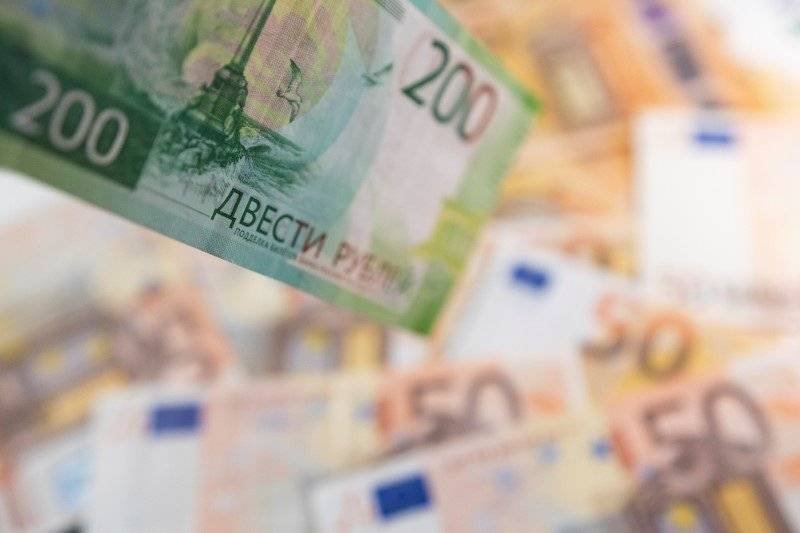
Introduction to the Rouble’s Decline
Prologue to the Rouble’s Decay
The new downfall of the Russian rouble has ignited broad consideration both locally and globally. Over a brief period the rouble has encountered critical devaluation prompting concerns and hypothesis about the basic causes. In the more extensive monetary setting Russia has been exploring through a progression of difficulties including fluctuating oil costs financial approvals and a stressed worldwide exchanging climate all of which have placed strain on the public money.
Official articulations, be that as it may, have stayed cautious, keeping away from any unequivocal association between the rouble’s devaluation and the Ukrainian struggle. This hesitance stands out unmistakably from the story set forth by unfamiliar spectators, who have rushed to propose that the financial strain from progressing military undertakings could for sure be a critical element. Such outside appraisals highlight the aggregate monetary weight of supported military commitment, reverberating with verifiable points of reference where delayed clashes have constantly focused public economies.
The Authority Russian Position
The decay of the rouble has been a huge financial occasion, catching the consideration of market investigators worldwide. Be that as it may, the authority position of the Russian government stays clear: the rouble’s presentation isn’t considered a result of the continuous struggle in Ukraine. Government authorities have underlined homegrown monetary arrangements and outside factors irrelevant to international pressures as essential effects on the cash’s variances.
Russian spokespersons have voiced that the money’s new pattern is significantly because of financial changes inside Russia’s monetary and money related techniques. Moored to declarations of strength, the state-controlled media has likewise depicted this story, reliably highlighting areas of strength for a financial structure. This informing intends to develop a feeling of security among the Russian populace, deflecting any immediate relationship with the global clash.
The reliable account moved by Russian specialists proposes that outer assents and worldwide exchange lopsided characteristics are the essential difficulties that the economy is exploring. Rather than adjusting the rouble’s deterioration to the circumstance in Ukraine Russian authorities feature the effects of worldwide financial disturbances post-pandemic recuperation elements and changes in global exchange strategies.
In accordance with this methodology, state media channels have widely covered stories on legislative drives to support financial versatility. Such reports regularly feature the improvement of homegrown businesses, progressions in territorial exchange organizations, and endeavors to differentiate monetary exercises from customary conditions.
In addition, Russian specialists have abstained from ascribing fault or bogus accounts, zeroing in ardently on building up the heartiness of their financial arrangements. The emphasized position maintains a strategic distance from any idea that the Ukraine struggle is a debilitating element for the money, standing firm in the depiction of a very much made due, versatile monetary framework arranged to climate transient worldwide financial movements.
”’
Media Quiet and Control
In contemporary Russia, the job of media is firmly controlled, especially with regards to financial detailing. State-run news sources have been eminently hesitant in tending to the new decrease in the rouble’s worth, particularly in connecting it to the contention with Ukraine. The authority account for the most part inclines towards outside variables like worldwide market vacillations or Western authorizations, precluding any immediate connection with military exercises in Ukraine.
This specific quiet is essential for a more extensive methodology of media restriction intended to oversee public discernment. Occurrences where the media has endeavored to cause associations between the financial decay and the Ukrainian clash to have been quickly smothered. Columnists who go astray from this firmly controlled account risk extreme repercussions. This incorporates the closing down of news sources, inconvenience of powerful fines, or even detainment under charges of dispersing ‘bogus data’.
A huge group of examiners highlight the repercussions of proceeded with Western approvals on Russia as a conclusive driver of the cash’s slump. Sanctions focusing on Russian banks, oligarchs, and state organizations have fundamentally compelled capital inflows, hosing financial backer certainty. Thus, decreased unfamiliar venture and restricted admittance to worldwide monetary business sectors have placed significant tension on the rouble.
Additionally, the connection between international pressures, especially the Ukraine struggle, and the rouble’s slide couldn’t possibly be more significant. Master pundits contend that the continuous military consumptions and global judgment coming about because of Russia’s activities in Ukraine have exacerbated financial flimsiness. The vulnerability and dangers related with the contention have resounded through the monetary business sectors, bringing about speculative exchanging and further downgrading of the rouble.
Nonetheless, it is significant to likewise think about homegrown monetary circumstances and strategy choices. A few examiners highlight issues like expansion, legislative financial systems, and money related strategy stumbles as inside factors demolishing the rouble’s presentation. Raised expansion rates, driven by inventory network disturbances and higher import costs, have decreased buyer buying power, obliging monetary development and adding to money pressures.
In synopsis, while the agreement among examiners recognizes the significant effect of Western assents and the contention in Ukraine, there is an acknowledgment that a bunch of elements are all in all impacting the rouble’s decay. This complete comprehension of both outer and inside powers is fundamental for an all encompassing perspective on the monetary difficulties confronting Russia.
Market Responses and Financial backer Feeling
The decay of the Russian rouble has ignited a horde of responses across worldwide monetary business sectors, mirroring an intricate interchange of financial backer feeling. Locally, the underlying shockwaves were generally clear in the stock and security markets, where unpredictability flooded altogether. Financial backers, careful about the rouble’s descending direction, started to reposition their portfolios, frequently selecting more secure resources. This shift was portrayed by an expanded interest for government securities notwithstanding their lower yield, featuring a wary venture approach.
Globally, the reactions were changed yet inclined towards suspicion and wariness. Numerous unfamiliar financial backers saw the rouble’s fall as suggestive of more extensive monetary precariousness exacerbated by international pressures. This discernment was especially unavoidable among institutional financial backers who lean toward steadiness and consistency. Subsequently, there was a recognizable pullback from Russian values and resources, with reserves being redistributed to additional steady business sectors.
Financial exchanges mirrored these feelings unmistakably. Key lists in Russia experienced stamped declines, and exchanging volumes spiked as financial backers moved to either strip or fence their current positions. Especially hit was the energy area, a foundation of the Russian economy, which saw a precarious drop in stock costs because of fears of pote


